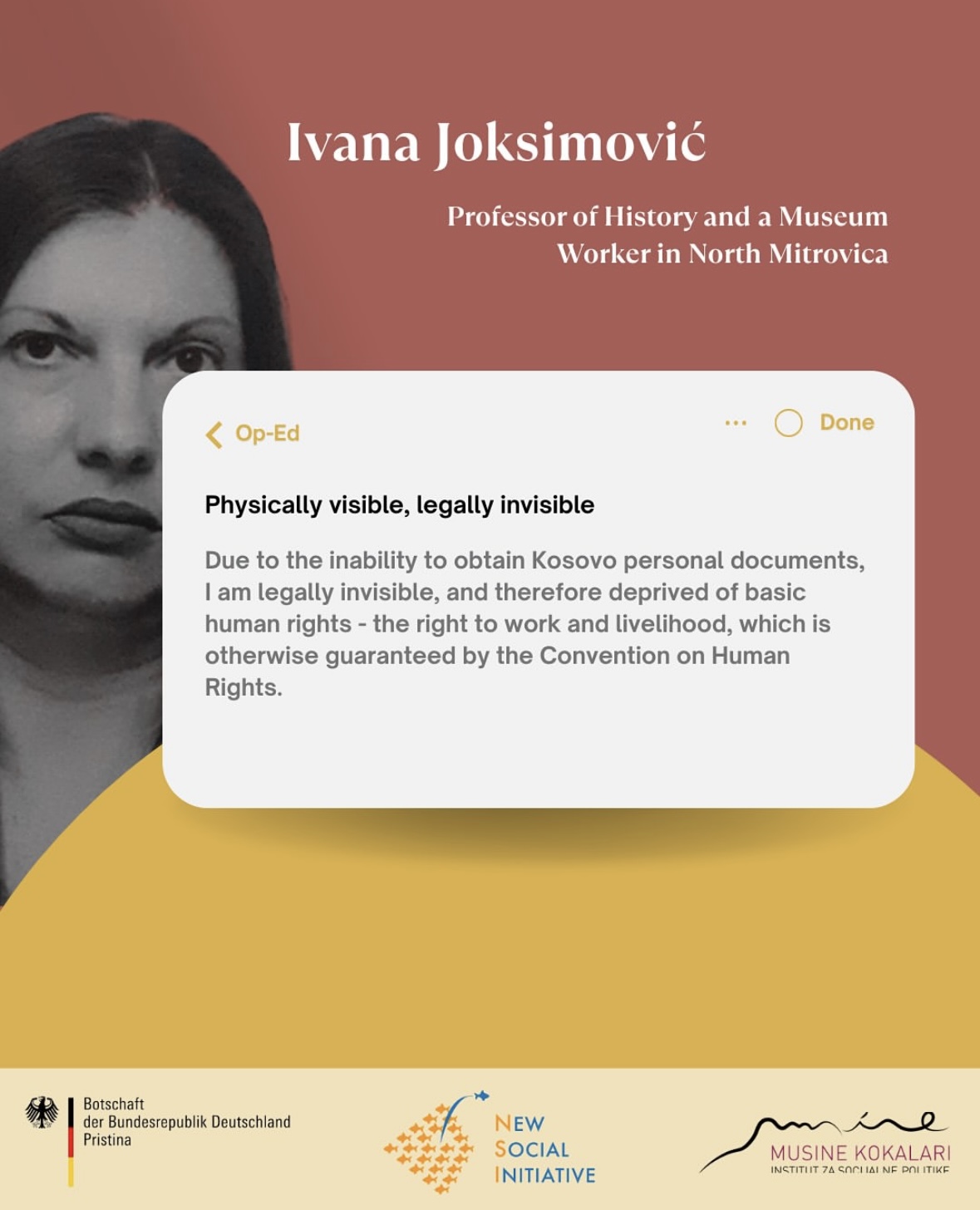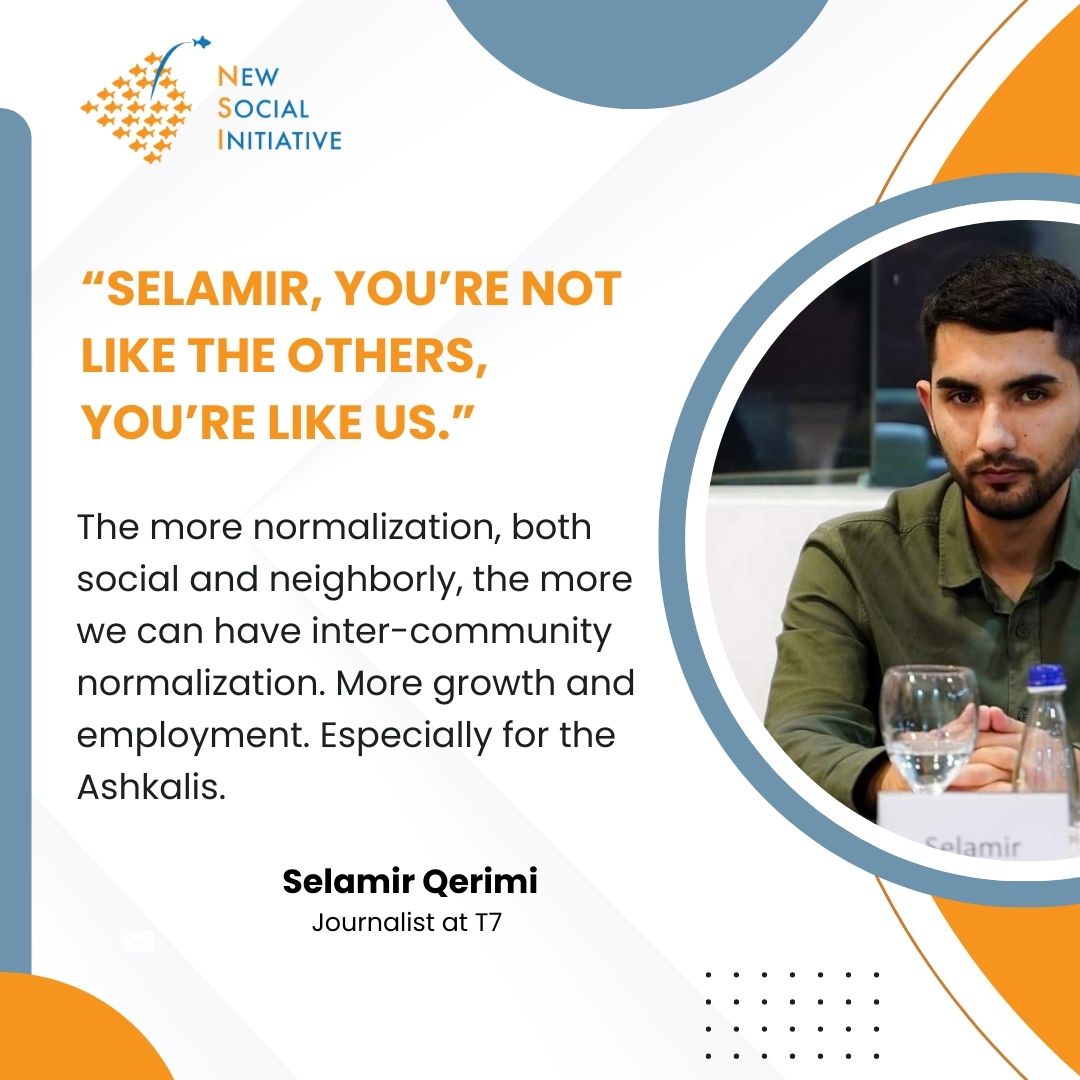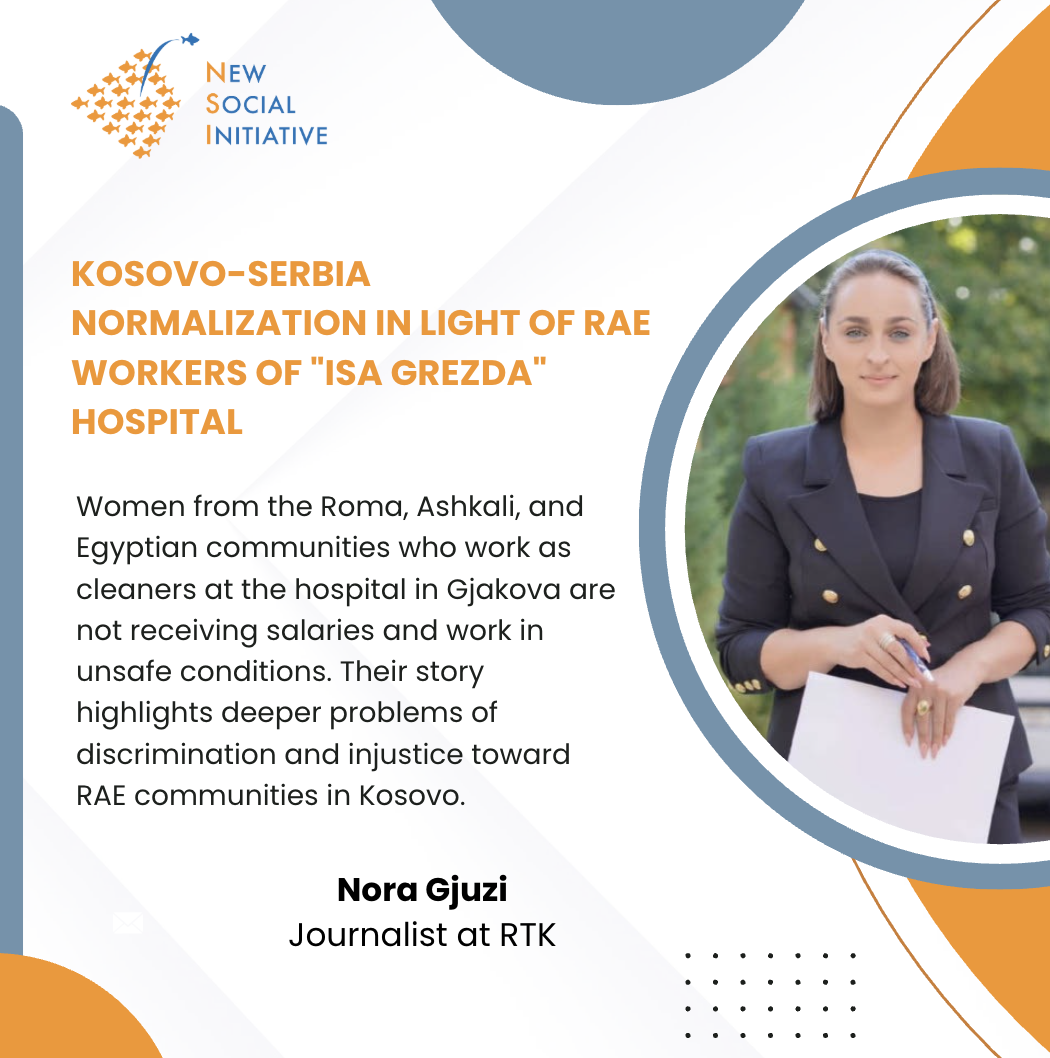Merely hours apart from the torture Miloš Subotić experienced in the police station in North Mitrovica, Ursula von der Leyen, President of the European Commission, praised the achievements of the Government of Kosovo in the democracy development and the rule of law. The contradiction between the democracy lauded by President von der Leyen and the one the Kosovo Serbs live in, succinctly illustrates the dichotomy between geopolitical actions made by the European Commission and the basic values underpinning the European Union.
Perhaps Ursula deems that Serbs are not entitled to enjoy the fruits of the Kosovo-style democracy?! Surely, the Serbs neither voted for Kosovo’s independence nor consented to enforced integration under the conditions imposed by Priština, making it an easy excuse to argue they have no right to enjoy the universality of the protection of human rights and democracy. What they are allowed is to be unwelcome aliens in their own homes to which they no longer hold ownership right, to be paid for (not) working at jobs that have in the meantime been terminated, and to put up with any form of institutional, legal and sometimes even physical maltreatment by those same democratic institutions of the Government of Kosovo that Ms. Von der Leyen beamingly and profusely praises.
The case of Miloš Subotić being beaten up is not an isolated instance of police brutality against members of the Serbian community in the north of Kosovo. Such pattern in the attitude of the Kosovo Police particularly intensified during the rule of Albin Kurti, and the brutality exerted by those expected to enforce the law has not spared children and youth. In June of last year, members of the Kosovo Police stopped brother (15) and sister (17) on a local road above the village of Žerovnica and inflicted serious injuries on both siblings. In April of this year, the Kosovo Police brutally beat Vladan Stevanović in the village of Bube above Zubin Potok. A year earlier, in April 2023, Kosovo Police wounded Milan Jovanović on the Bistrički Bridge. In September of this year, four Serbian youngsters were firstly arrested at the feet of the Duke Lazar Monument and thereafter beaten up in the Police station “North”. The above are only a few of many examples of excessive use of police powers that the public is aware of. There are many more other incidents in real life, which remain etched in the privacy of people who have suffered them and spur permanent disgruntlement and frustration that goes on simmering not only in them but also in their families and the general Serbian community.
Not a single police officer was held accountable for their unlawful acts in northern Kosovo. As a rule, there would always be an error in the procedure resulting in the rejection of any charges. Several cases of potentially negligent and illegal police actions are presently investigated by Ombudsperson, a few of which also investigated by the Police Inspectorate of Kosovo, but the general public and in particular the Serbian community as the most heavily affected one, is not informed about the results thereof. Hence, deepening distrust of the Serbian community in the operation of Kosovo’s institutions, including declining trust in independent institutions, comes as no surprise, and results in a growing withdrawal of the Serbian community from public and political life in Kosovo.
Even those well informed in Kosovo have forgotten that the police officers from the ranks of the Serbian community have repeatedly warned, before they took off their uniforms, of the brutality exercised by the special police forces when in northern Kosovo. Had this been resolutely dealt with by suppressing this type of violent behavior by members of special police units dispatched from Priština to maintain order in the northern municipalities, the Serbian police officers most likely would not have left their jobs.
Had there been a little more wisdom in Brussels, they would not have allowed Kurti to implement the Self-Determination Movement’s program aimed at undermining both multi-ethnic Kosovo and mechanisms for the protection of collective rights of Serbs that were forged with many difficulties through the Ahtisaari Plan and the Brussels Dialog. However, it is always a safer move to go on praising Kosovo’s democratic achievements than to criticize that same Government’s repressive behavior targeting a specific ethnic group.
Had there been a little more courage in Brussels, they would have more decisively underlined that the basis of Kosovo’s democracy was the division of powers whereby the local police must reflect the community’s ethnic composition, and that the regional police in the north had its own specificity that makes the backbone of the normalization of relations as negotiated within the Brussels Dialog. They would have also been more vocal on the repressive actions of the Kosovo Police in Serbian areas in northern Kosovo. Yet it is always easier to use the Serbian walkout from institutions as an excuse than to uphold the basic achievements of the First Brussels Agreement.
And this is the true image of democratic values praised so much by Ursula, with a wide grin full of porcelain-white teeth, while giving statements more becoming to a Miss Universe pageant than to the institution she represents. Pilate washed his hands, and Ursula praised democratic commitment of the Government of Kosovo to brutally beat up Miloš Subotić while in shackles in a dartk room of the police station in North Mitrovica.










